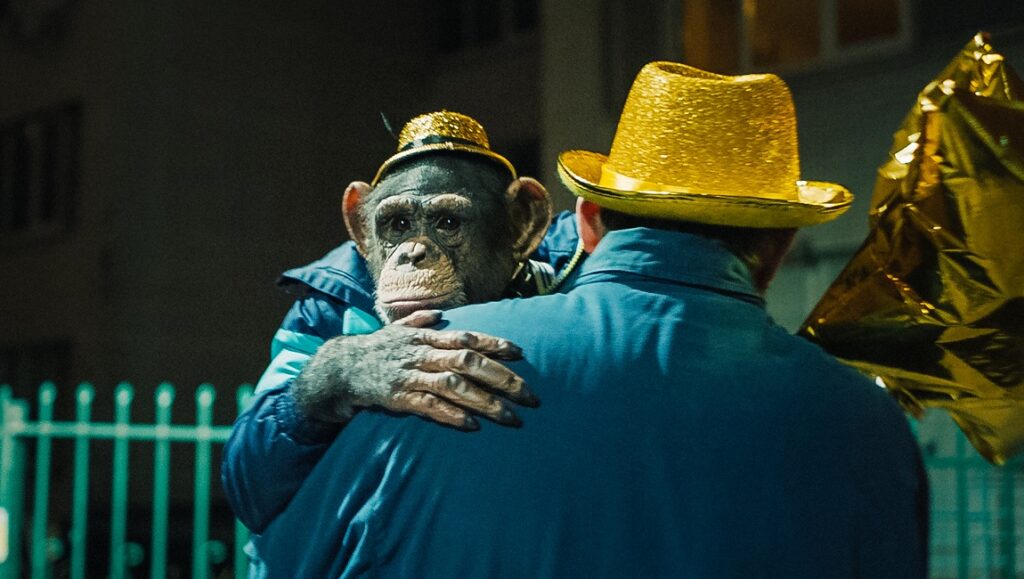Space Dogs finds directors Elsa Kremser and Levin Peter misty-eyed and looking up at the stars, convening mythologies surrounding the Space Race. But the filmmakers also take moments to look down — at the descendants of wolves running amok through the streets of Moscow, their howls reaching back up towards the narratives projected through to the sky. Here, observation takes on a subversive role: sporadically exhibited archives of the Soviet Space program’s training for dogs lay the foundation for the film’s hollowed-out structure, which is meant to be filled by our own sense of story and narrative. Kremser and Peter follow the unknowable trajectories of street dogs — their intimidation, fears, and hunger, all of which can of course only be inferred. Just as the film’s poster renders the image of Laika (the very first animal sent into Earth’s orbit) in the night’s stars, so do we as spectators project emotion into the growls, yelps, and barks that can so often be heard under the cover of darkness. This desire to rationalize these gestures into sentiment can be confounding — though while observing these dogs, it becomes clear that the narratives constructed around them in the film are simply card tricks and illusions. They project human psychology onto fundamentally inaccessible creatures.
What remains is the numbness that our knowledge of this vacancy creates; we remain at an arm’s length from these inquisitive animals, their jerking violence and random fervor. The canines are often shown baring their teeth at each other, often for no discernible reason. We are unable to engage with them in any meaningful way beyond conjecture, beyond what is meaningful to us. In a sense, though, this discrepancy is what is most fascinating about the film, and contributes to its awestruck explorations of space: Unable to extrapolate human feeling from these creatures, we are forced to gather around the fire and tell ghost stories under the night sky, as the images of dogs form in the constellations above.
Published as part of Before We Vanish | September 2020.


Comments are closed.